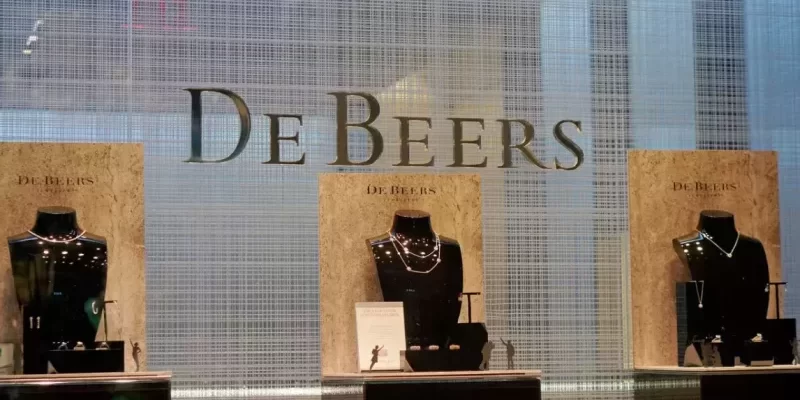Botswana’s President, Duma Boko, who secured a victory in October’s elections, announced that his government has reached a diamond extraction and sales agreement with De Beers, providing much-needed certainty to the nation’s gem-dependent economy.
The terms of the deal were finalized by midnight on January 24, and an official announcement is expected soon. Botswana is the world’s leading producer of rough diamonds by value, with the industry accounting for the majority of its income.
Most of the country’s diamonds are mined by Debswana, a joint venture between Anglo American’s De Beers unit and the government.
“The issue with De Beers has been settled,” Boko stated in an interview on Tuesday in Dar es Salaam, Tanzania, where he is attending an energy conference.
He had previously indicated at the World Economic Forum in Davos that an agreement was near, reaffirming his commitment to conclude negotiations.
During his election campaign, Boko criticized his predecessor, Mokgweetsi Masisi, for mishandling talks with De Beers regarding the renewal of the long-standing partnership between Botswana and the diamond giant.
Boko claimed Masisi’s actions had almost caused De Beers to walk away from the deal, prompting him to reopen the discussions.
Boko’s Umbrella for Democratic Change coalition ousted the Botswana Democratic Party, which had ruled the country since its independence from the UK in 1966.
The new agreement, according to Boko, brings no significant changes but involves some minor adjustments.
Under a ten-year deal announced by the previous administration in July, the state-owned diamond trader was set to receive 30% of Debswana’s output, while the government would receive P10 billion ($720 million) in development funding.
De Beers has yet to respond to requests for comment.
Once an underdeveloped nation, Botswana has used its diamond wealth since their discovery in 1967 to become Africa’s richest country per capita, as per the World Bank.
However, the country faces challenges, including a slump in the global diamond market and increasing competition from lab-grown diamonds. Boko stated that the new agreement would restore stability and help foster economic growth.
Moving forward, the country will focus on promoting its diamonds as natural and charging a premium for their provenance.
These diamonds will be marketed to highlight their origins and the development they support in Botswana, differentiating them from lab-grown alternatives.
Boko stressed, “We appreciate the threat posed by lab-grown diamonds, but I don’t want to give them the privilege of calling them diamonds.
Diamonds are natural.” He added, “We will then market our diamonds in terms of their provenance and the story behind them.”
![]()




